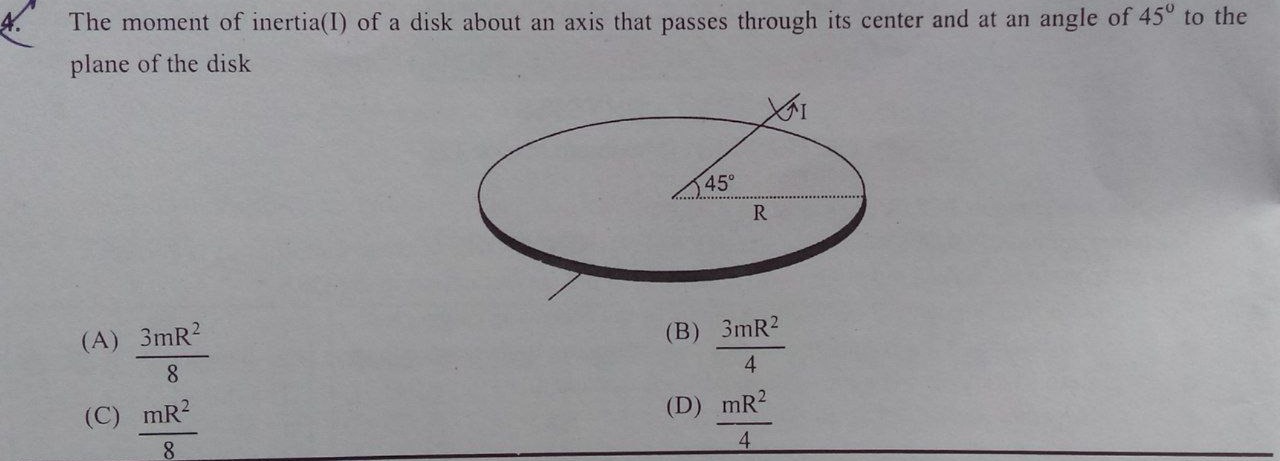Question
Question: The moment of inertia(I) of a disk about an axis that passes through its center and at an angle of 4...
The moment of inertia(I) of a disk about an axis that passes through its center and at an angle of 45° to the plane of the disk

83mR2
43mR2
8mR2
4mR2
83mR2
Solution
The moment of inertia of a uniform disk of mass m and radius R about an axis perpendicular to its plane and passing through its center is I⊥=21mR2. The moment of inertia about any diameter (an axis lying in the plane and passing through the center) is Idiam=41mR2.
Let the axis of rotation be L. The problem states that L passes through the center and makes an angle θ=45∘ with the plane of the disk. Let α be the angle between the axis L and the normal to the plane of the disk. Then, α=90∘−θ. Given θ=45∘, we have α=90∘−45∘=45∘.
The moment of inertia I about an axis through the center of a planar body, making an angle α with the normal to the plane, is given by the formula: I=Idiamsin2α+I⊥cos2α
Substitute the known values: Idiam=41mR2 I⊥=21mR2 α=45∘, so sinα=21 and cosα=21. Therefore, sin2α=(21)2=21 and cos2α=(21)2=21.
Now, substitute these into the formula for I: I=(41mR2)(21)+(21mR2)(21) I=81mR2+41mR2 To add these terms, find a common denominator: I=81mR2+82mR2 I=83mR2
The moment of inertia of the disk about the given axis is 83mR2.
